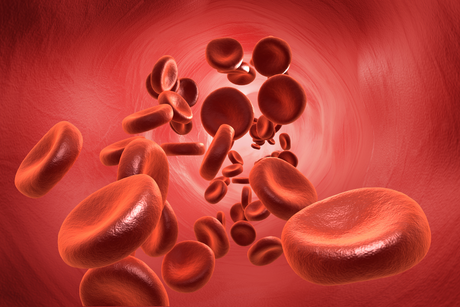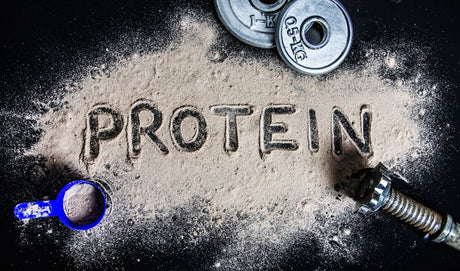This blog post will discuss why resistance training is one of the most beneficial forms of exercise for physical health and mental well-being. Resistance training has proven to have immediate and long-term effects on those participating.
What is resistance training?
Resistance training, or weight training, is a type of physical exercise that uses the force of resistance to build strength, stability, endurance, and overall muscle mass. It typically involves using weights or other forms of resistance, like elastic bands, machines, or body weight, to create tension in the muscle.
How can you benefit from resistance training?
Elevate your mental well-being.
Resistance training can be an effective tool for improving mental well-being. Studies have shown that regular resistance training can reduce the stress hormones cortisol and adrenaline while increasing endorphins and serotonin. Which helps to reduce feelings of anxiety and depression, as well as improve overall mood. Regular resistance training leads to increased muscle strength and definition, improving body image, which can help to boost one's self-esteem and confidence. Additionally, resistance training has been linked with improved sleep quality, which is necessary for optimal brain function and mental health.
Improve muscular strength and endurance.
Resistance training improves muscular strength and endurance, as it helps to build and tone muscle fibres. During exercise, the muscles are put under tension to grow stronger and more fatigue-resistant. This increased strength enables them to exert more force for extended periods without tiring. Resistance training also increases the size and number of capillaries that feed oxygenated blood to the muscles for more efficient delivery of energy and nutrients.
Achieve a healthier body composition.
Resistance training helps improve body composition by promoting muscle tissue growth and reducing fat mass. It does this through several mechanisms, including increased muscular contractions, which cause micro-tears in muscles that stimulate the production of new muscle fibres. Increased muscle contractions also cause metabolic activities to increase, leading to an increased rate of caloric burn and fat oxidation. Resistance training also triggers hormonal changes that lead to more significant fat loss, such as increased testosterone levels in men and growth hormone (GH) levels in both men and women. GH is particularly important for stimulating fat burning because it targets stubborn fat stores like those around the midsection.
Improve your metabolism.
Resistance training can boost your metabolism in a number of ways. First, it increases muscle size and strength, raising the body's basal metabolic rate so that even when you are at rest, your body works harder to burn calories due to the increased muscle mass. Resistance training triggers Excess Post-exercise Oxygen Consumption (EPOC), which means that your body continues to burn calories after exercising. This process can last up to 48 hours after a single workout session! Resistance training also increases insulin sensitivity and the efficiency of glucose uptake into cells, effectively making it easier for your body to use carbohydrates as fuel rather than storing them as fat. Finally, regular resistance training can alter hormones that influence metabolism, such as testosterone and growth hormone levels, allowing your body to use more energy and burn more fat even when not exercising.
Correct posture and improve balance, coordination, and joint flexibility.
Regular resistance training effectively strengthens the muscles that support the spine and body in upright positions. Resistance exercises also help increase the stability of joints and improve balance by strengthening core muscles. Increasing muscular strength throughout the body can help enhance flexibility by allowing muscle groups to move more freely. Using proper form while performing resistance exercises will help ensure the alignment of bones and joints, reducing stress on these areas and preventing injury.
Fight muscle loss as you age.
As we age, it's natural to experience some muscle loss. Resistance training becomes an even more important form of exercise because it helps prevent muscle loss that occurs with aging. Resistance training increases the strength and size of muscles and bone density, which helps protect against age-related bone loss. Studies have shown that regular resistance training can reduce the rate at which muscle mass decreases by up to 50% in those over 65. This is due to increased protein synthesis, which activates pathways that cause muscle growth and repair. Resistance training also increases muscle blood flow, providing essential nutrients for muscle maintenance and repair. Resistance training can be customized to any individual's needs, making it an effective way to keep feeling your best as life progresses.
Maintain bone health.
Resistance training causes stress to our bones; our bodies respond by remodelling the bone structure, increasing its density, a process called osteogenesis. This increased bone mass can reduce the risk of osteoporosis, making bones more resistant to fractures and allowing for better joint stabilization, balance, and coordination.
Additionally, resistance training increases blood supply to bones, improving nutrient delivery and overall bone health.
Improve cardiovascular fitness.
Resistance training helps to improve cardiovascular fitness by strengthening the heart and lungs. The increased muscular strength and endurance achieved through resistance training helps the heart pump more efficiently; this leads to increased oxygen delivery throughout the body, providing cells with more energy and improving overall health. Resistance training helps reduce blood pressure by increasing muscle mass, lowering resting heart rate, and reducing arterial stiffness. Resistance training also increases muscular endurance, making your body capable of tolerating intense physical activities like running or cycling. Your muscles will better handle the increased workload without fatiguing quickly.
Rehabilitate and reduce the risk of injury.
Regular resistance training increases muscle strength, allowing us to perform daily activities with less strain on our bodies. Resistance training also helps to protect bones and joints from injury or illness by strengthening our connective tissues, such as tendons and ligaments, making it an ideal form of exercise for injury prevention and rehabilitation.
Support healthy brain function.
Physically active individuals may be better able to resist degenerative diseases due to increased growth hormone production, improved nerve cell health, and heightened blood flow to the brain, which helps ensure that essential nutrients reach the cells.
In a 2020 study conducted by the University of Sydney, resistance training was discovered to be beneficial for older individuals already at high risk of Alzheimer's disease. The study found that those who performed regular resistance exercises over a six-month period experienced a slowing (and, in some cases, a complete halt) in the decline of hippocampal volume, a vital area of the brain where memory and learning are processed. These findings suggest that resistance training can help to protect against age-related decline in cognitive functioning and may even delay or prevent the onset of neurodegenerative diseases like Alzheimer's.
How to get started with resistance training?
If you're new to resistance training, starting slowly and gradually increasing the weight and intensity as you become more comfortable is essential. Here are some tips to get started:
- Talk to your doctor or healthcare provider before starting any new exercise program, particularly if you have any injuries or medical conditions. They can suggest specific exercises and help you create a safe workout plan.
- Start with bodyweight exercises at home. Once you feel comfortable, join a gym, and talk to a trainer about your goals and any concerns you have. A trainer can design a program specifically for you, teach you proper form, and help you progress to using weights safely.
- Find a workout buddy! It's always more motivating and enjoyable to exercise with someone else. Plus, they can help keep you accountable.
- Safety first! Always use proper form when lifting weights to avoid injury. Don't try to lift too much too soon. Start light and gradually increase the amount of weight as you get stronger.
Our partners at Inception Gym are located in Tower Junction, Christchurch. Member experience is at the forefront of everything they do, ensuring a positive and all-inclusive environment, regardless of experience, ability, or health and fitness goals. The Inception Gym is spacious and well-equipped, with a huge range of both weighted and cardio equipment to accommodate everyone. Inception Gym are your performance partner, talk to the team today to start your fitness journey.
Reference: Hippocampal plasticity underpins long-term cognitive gains from resistance exercise in MCI










